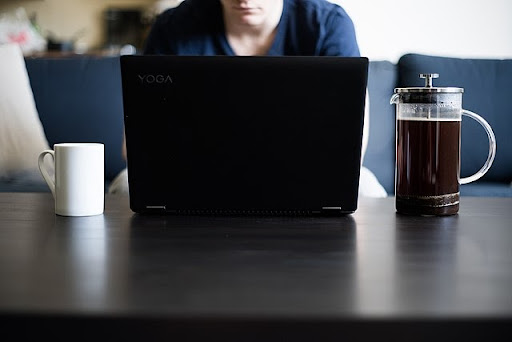Not that long ago, if you told someone you worked from home, many would conjure up an image of you lounging on the couch or in bed, still in PJ’s, gazing out the window and not really doing much work. We all know this isn’t what really happens. Since the COVID-19 pandemic, working from home has become more mainstream and more people realize that those of us who work from home still have a job, have to put in hours — often more than 8 a day to meet deadlines, and can’t just drop everything and drive to the coffee shop for a mid morning meet up, or head out for a day of shopping.
While we may have different reasons for working from home, we can probably all agree that working from home is awesome. It allows us to do something we love, pick our own hours, and still be able to take care of the home and family. But, it also means we have to deal with things like the kids yelling, dogs barking, or family and friends stopping by for coffee and a chat during work hours. And we have to be able to ignore that daytime show we’ve been dying to see, the load of laundry piling up, and dirty floors. Working from home also means we’re less likely to leave the house and have a ‘normal’ adult routine, which can lead to feelings of isolation and depression.
Here are some tips that can help you manage your time, your family, your home, and your health when working from home.
Let Family or Roommates Know Your Expectations
Unless you live alone, distractions from family and roommates are unavoidable. However, you can cut down on them by ensuring everyone knows your work hours.
If you don’t have an office space with a door you can close, think about other cues you can use to let everyone know you’re working and need some peace and quiet. For some, wearing headphones could be the cue, for others, maybe a light on the desk would work. You might not be able to stop the dogs barking, or the cat taking a nap on your keyboard, but you’ll at least be able to minimize human distractions.
Get Ready for Work
You don’t need to dress as formally as you would if you were going into an office. But spending all day in your pajamas may not be helping you stay productive.
Our brains are programmed to take cues from what we do. If we sit in PJs or sweatpants all day, our brain stays in lounge mode. If we spend a few minutes on a morning prep routine, take a shower, get dressed, etc, we’re telling our brains it’s time to get up and get going.
Create a Dedicated Work Space
This may not be possible for everyone, but if you can create a dedicated workspace, do so. It helps you stay focused on work and cut down on distractions.
If you have a spare room and can create an office, you’ll be able to shut the door when working and minimize distractions from the family, pets, and the TV. But, if not, set up a work area in a corner of a quiet room that has good natural lighting. Add a desk and a comfortable desk chair you can handle sitting in for long periods, and ensure everything you need for work is within easy reach.
Maintain Consistent Work Hours
This may be easier said than done, but whenever you can, try to maintain a good work-life balance by having consistent working hours. As much as possible, try to start and finish work at about the same time. And when your day is done, move away from your work area so you aren’t tempted to put in an extra hour or three.
Take Breaks
It’s easy to lose track of time when you’re working from home, and before you know it, you’ve worked a full day without a single break. However, you will likely find that you’re more productive if you take regular breaks.
Allow 10-15 minutes during the morning and afternoon and 30 minutes to an hour for lunch, and get away from your desk for a while. Have a stretch, get some fresh air, or spend time with family. Then come back to your desk refreshed when your break is over.
Interact with Others
Working from home often means less time to get out and socialize. You’re not able to meet up with people for a chat around the water cooler or in the break room, and feelings of boredom and loneliness can set in.
Interacting with other people outside of your family unit is a good thing, and there’s plenty of ways to do it. Spend a little time running an errand or choose a few hours one day a week to go work at the local coffee shop. Use tools like Slack and Zoom to interact with other CrewMachine freelancers. Every project has a Slack, and every Slack has a Water Cooler type of room where you can just kick back and get to know the people you work with.
We hope you find these tips useful. Do you have any other tips or routines that help you stay productive and avoid distractions? Let us know, so we can add them to the next article.

